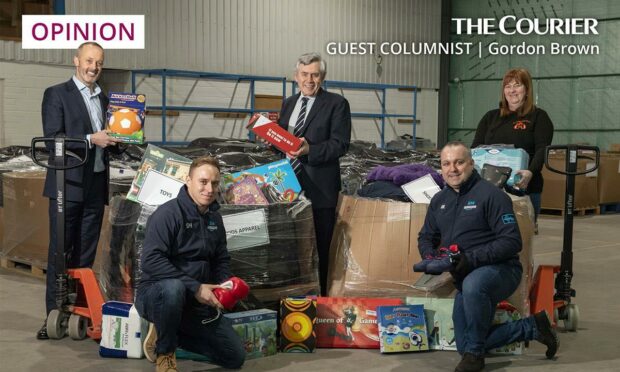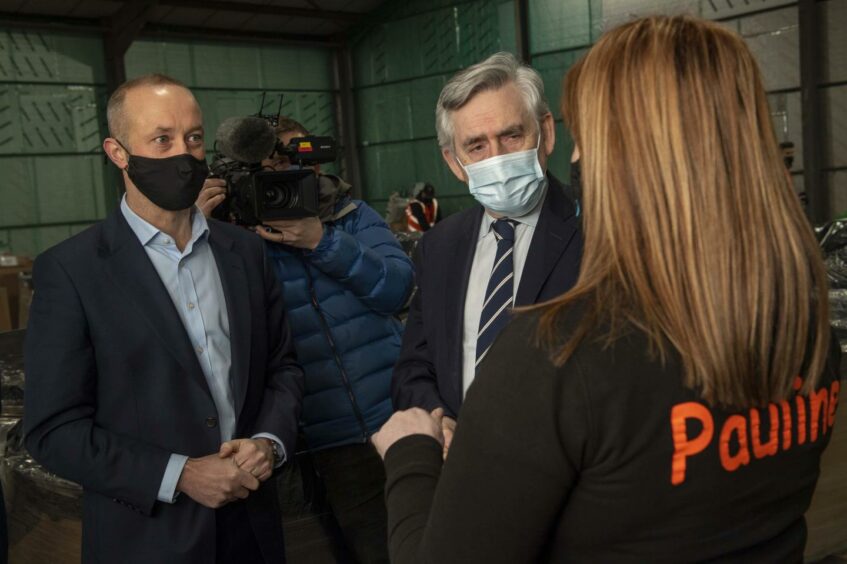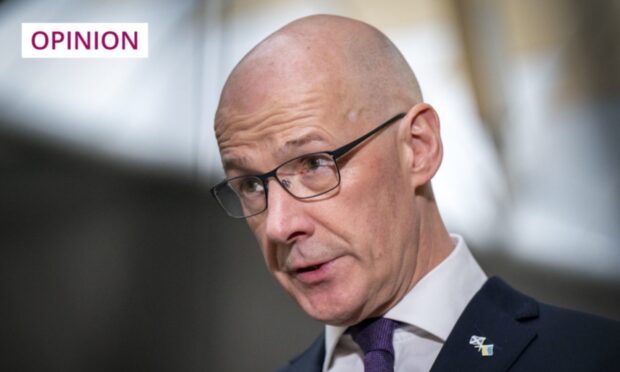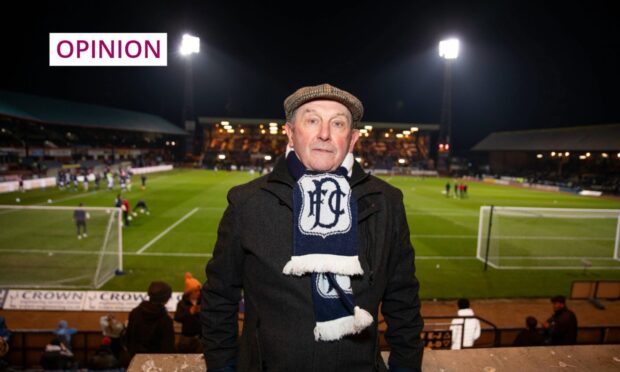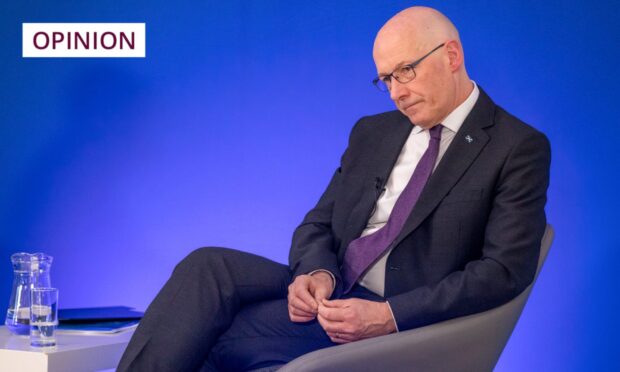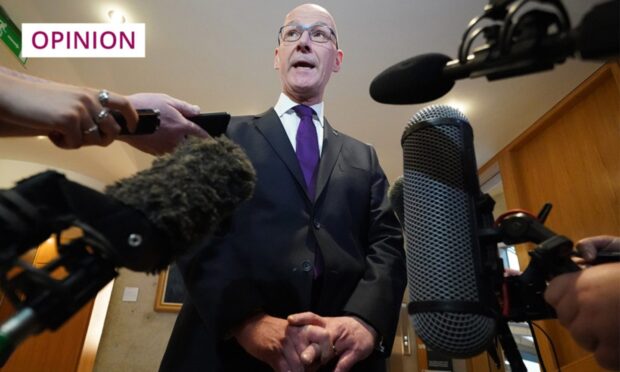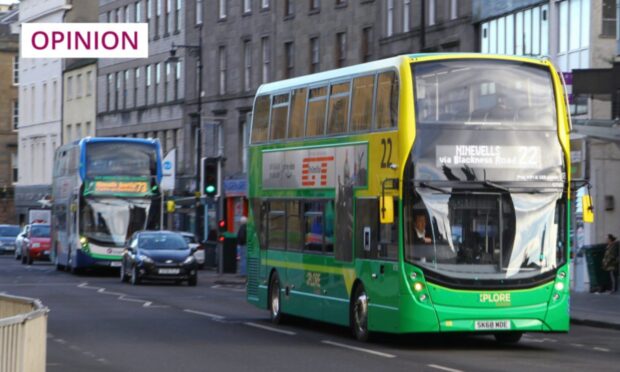This week, as heating bills soar and the cost of the food shop continues to spiral upwards, thousands of Scottish families are faced with the most difficult choices.
Do they spend their ever more limited resources on feeding their prepayment gas and electricity meters, or feeding their children?
Not at any time since I grew up in Fife have I seen such poverty and hardship.
Mothers without cookers, unable to offer their family hot food.
Children going to school ill-clad and hungry.
Parents afraid to turn up the heating even on the coldest of winter nights for fear of the bills.
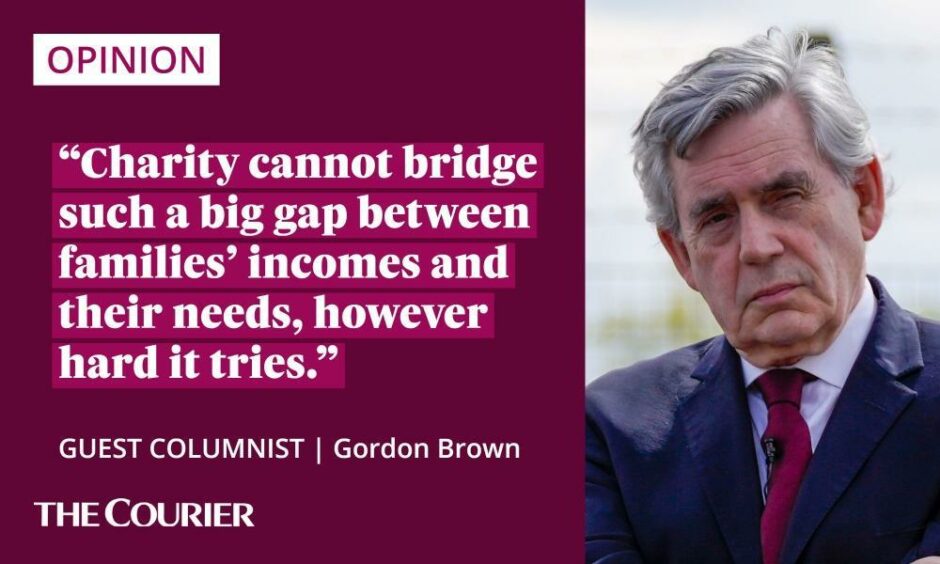
In the last few months Kirkcaldy’s family centre, the Cottage, has had to come to the aid of a family with no beds where three children were sleeping on the floor under one sheet.
It has had to assist tenants who have not even the most basic of furniture in their flats.
And it has had to offer emergency help to several hundred mothers who recently queued outside their local Coops to drew on a special Cottage fund that put £25 on each of their gas and electricity meter cards.
Charity support for families facing poverty
Charities, food banks and voluntary organisations are doing what they can to deal with the UK Government’s quadruple whammy of rising taxes, benefit cuts, and fuel and food inflation.
But already, even before the biggest rises in weekly bills, they are being stretched to their limits.
In December, with the help of Amazon’s UK MD John Boumphrey, the Cottage created a warehouse through which every week as many as 6,000 surplus goods – from nappies and children’s clothes to home furnishing and electrical goods – go to families in need.
Together with 60 local charities- and all local schools, health centres and social work teams – they set up the Big Hoose project.
Today the Cottage, of which I am honorary patron, is adding six local companies to its list of donors and creating a new project, Houses are Homes, which is designed to help families decorate insulate and improve their homes.
Fife firms helping families furnish their homes
Joining Amazon as a partner in its plan to help 15,000 Fife families facing higher food and heating bills are Scotmid, Craig and Rose, Fishers Laundry, Bell Group Kirkcaldy, RGM Heating Ltd and the Purvis Group, which has offered its 6,000 square feet Lochgelly warehouse rent free.
With families unable to afford their heating bills, the biggest current demand from mothers is for blankets and bedding to protect their children against the still cold nights.
And so today the Cottage family centre is making an appeal for local firms to donate blankets duvets and beds.
A charity in Fife backed by Gordon Brown has launched one of Scotland's biggest anti-poverty projects.
An agreement signed with 6 companies will see millions of pounds worth of unsold household goods and bedding distributed to families struggling with the cost of living crisis. pic.twitter.com/Ap1x3VKpXC
— Good Morning Britain (@GMB) March 30, 2022
We are also appealing for carpeting, paint, wallpaper and floor coverings so we can start on our home improvement programme, helping people paint, redecorate, and refurbish their houses.
Welfare system doesn’t match community kindness
There has been an unprecedented surge of local philanthropy in a community that does not have a lot to start with.
But even as Fife food banks, and community groups are doing all they can to make good the losses families face from the benefit changes, the best we can hope for this year is to put back in an additional £6 million to compensate for the £60m Fife will be short of after the rise in bills coming this week.
That is not enough to stall the looming rise in poverty – even with the Scottish Government’s new child poverty payment for the under sixes.
“I am virtually out of tools to help people now,” says the Money Saving Expert
Martin Lewis says the UK is facing the worst cost of living crisis he has ever seen#Raworth https://t.co/PYeTp7O30G pic.twitter.com/foekmqPlph
— BBC Politics (@BBCPolitics) March 20, 2022
The facts speak for themselves.
Loughborough University’s Minimum Income Standard – compiled from what members of the general public think are essential living costs – states that a couple on Universal Credit with two children aged three and seven require £511 a week after paying rent and council tax.
But all they will receive from next week is £274.
And if they have a third child, they will receive less than half of what they need since the two-child cap restricts help with the third child to £14.45 a week.
This is far short of the actual costs, which range from £90 to £140 depending on the boy or girl’s age.

In addition, the so-called rent cap and benefits cap now set an even harsher upper ceiling for payments, no matter your weekly requirements.
Poverty crisis calls for government action
Charity cannot bridge such a big gap between families’ incomes and their needs, however hard it tries.
We need faith groups, foundations, voluntary organisations, local authority leaders and all of the devolved administrations to combine together in a campaign to change the policy of the UK government.
By doing so we may be able to ensure that by September, when gas and electricity bills rise 40% again, there is far more support for those in need.
Former Prime Minister Gordon Brown is honorary patron of the Cottage Centre.
